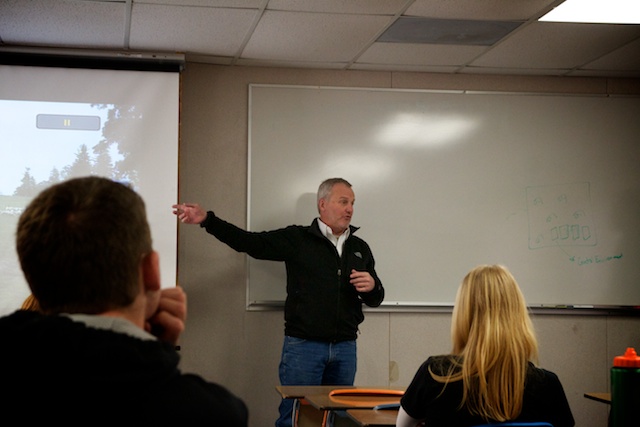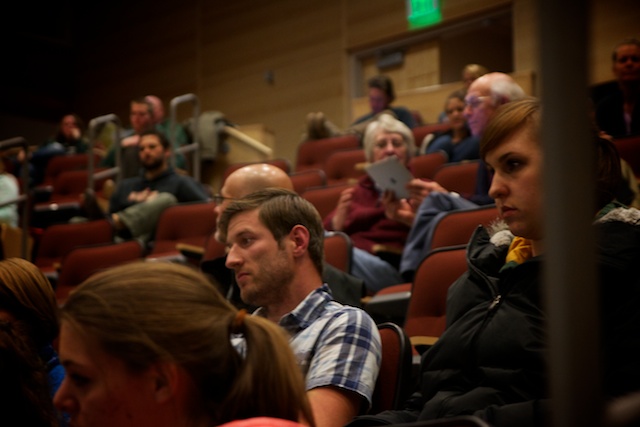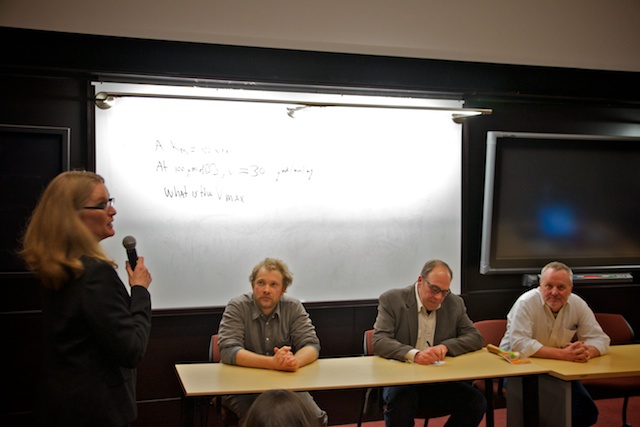Back on the Road
After a brief furlough in NYC with some friends/loved ones, we drove west to Ohio , back on the road. Victoria hosted us at Baldwin Wallace, along w the group Students for Environmental Advocacy, (SEA) or something like that. Rebecca, who started the student farm at BW and just graduated led the post screening conversation. Most of the 70 there stuck around, as the conversation wrapped up a little after 8. There's a palpable movement, young people interested in agriculture, a shift that Mary, a professor at Case can feel, and one that prompted Cassandra a prof at BW to start a class called the future of food. Piper talked about leveraging purchasing power to cause incremental change, Erica talked about how food creates community, citing the growth of neighborhoods with the growth of farmers markets and outdoor spaces in a neighborhood. We said goodbyes and thankyous and headed to Akron where we dinnered at the rail, with dev and his brother Damon , super nice, funny guys who are brothers and long time friends of Andy. Sleep now.
All in this together
Water
This week in Colorado, the focus of the farmers has been water.
Breeding for Good, Creating Bad
Breeding in animals is an interesting topic of discussion especially when you factor in breeding for certain traits. We may think we are doing animals a favor when we selectively breed certain traits that seem advantageous and try to breed out others that don't. The fact is though that we aren't. While a bulldog with a pushed in face may seem cute to some, it simply isn't a practical animal and we are doing it a diservice by breeding it for that particular trait. Cows bred strictly for milking might seem okay in theory but when health complications arise, we unfortunately end up harming the cow for our own personal gain. Breeding hens strictly for their egg laying abilities might seem practical for farming purposes but the result is an animal that looses its feathers quickly and often gets overly anxious for no reason.
We get caught up in our ability to do certain things we don't stop to think about whether we should be doing them in the first place. Many of us are far removed from farm animals (we don't see them on a daily basis) most of the people who read about hens and cows with health complications won't be overly concerned. However, when you begin to talk about domesticated pets like dogs and cats and the health complications that can arise from breeding for particular traits people's ears begin to perk up.
It seems necessary that we begin to reconsider the way in which we treat and interact with animals. Temple Grandin is an exemplary person for which we can understand and base our animal interactions around. She looks at animal wellbeing from a holistic standpoint and while she may see the short term benefits she can also see the longterm side effects. As it stands, animals are viewed as a commodity instead of an individual creature which is a big reason their ill-treatment goes unnoticed. It's time to reconnect and understand where our food comes from so we can have a say in how it is produced.
Tuesday's Full
Everything Ties Together
After a wonderful meal cooked by Chris Saturday night, we spent Sunday skiing on Breckenridge, a bit of a surreal experience after spending so much time focused on agriculture.
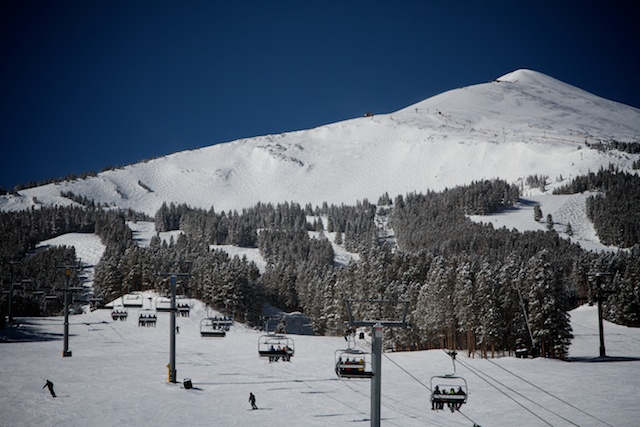
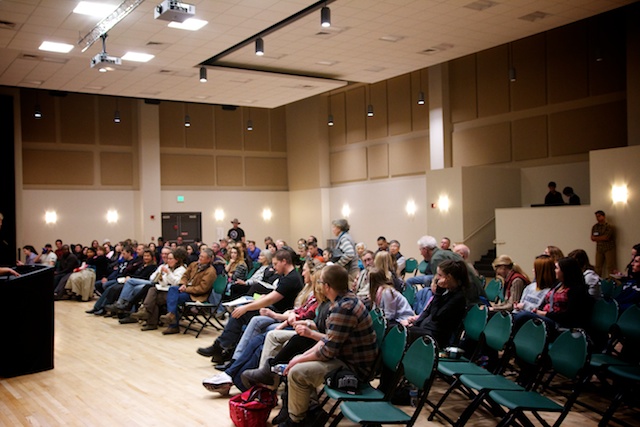
Return to Community
We pulled up a bit after dawn, and Andre was helping a friend fill up an empty tire.
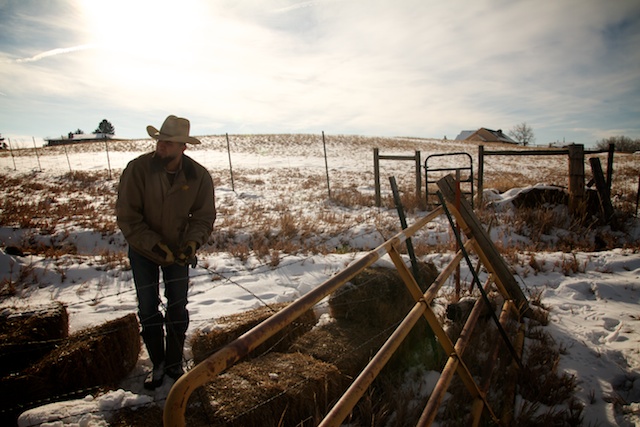
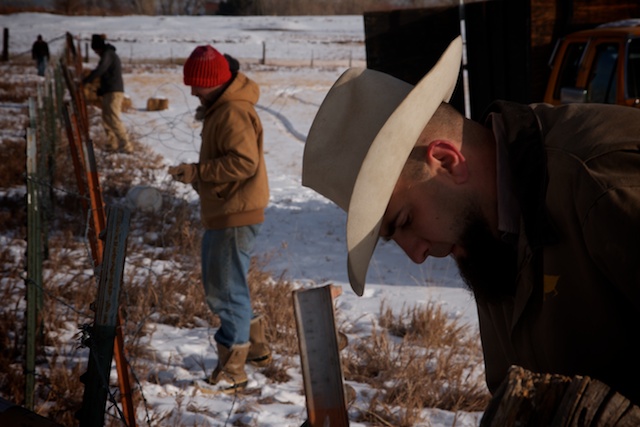
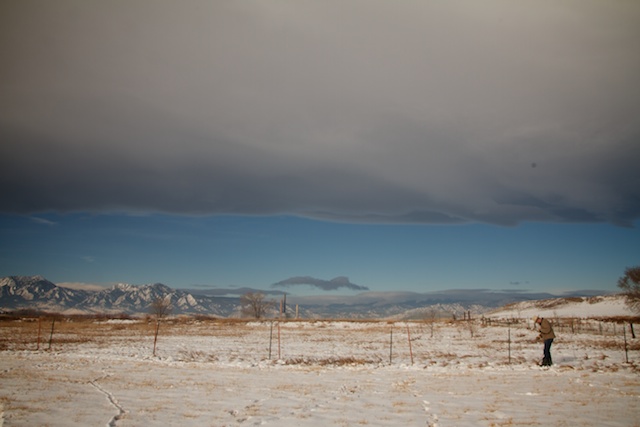
Briggsdale to Regis
The drive North and East was pretty treacherous, with many spots being completely covered in ice, and many cars and trucks sliding off into the ditches on the side of the road. Andy took it slow and steady, and we made it.
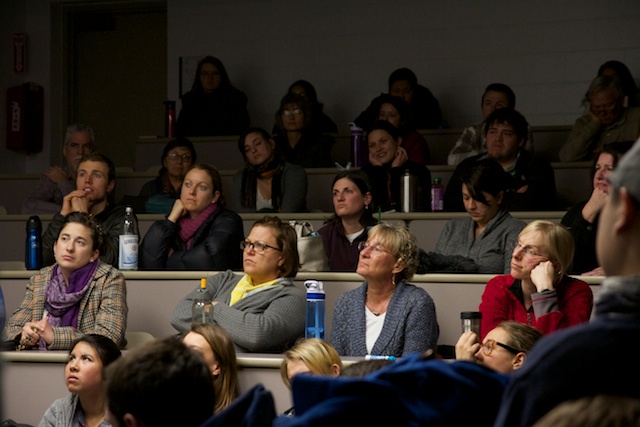
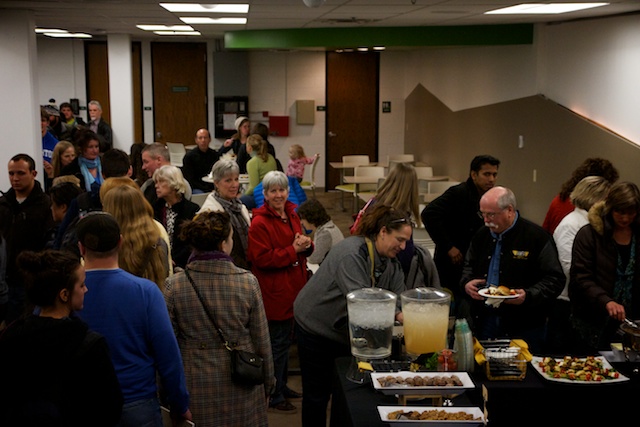
Snowfall
A snow started falling Wednesday night and picked up in intensity as the night progressed. We drove from Fort Collins to Denver, where we're staying with the ever-generous Brendan Cady.
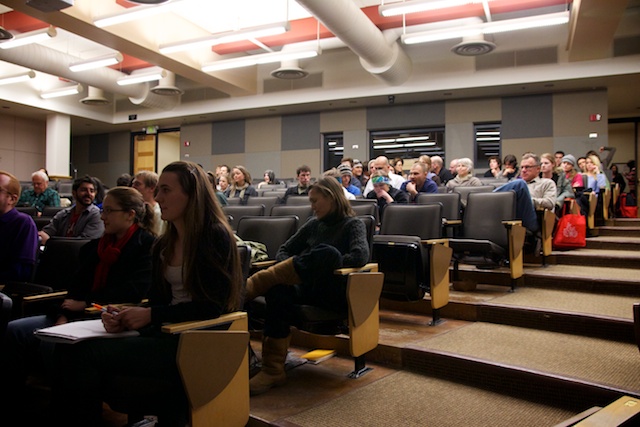
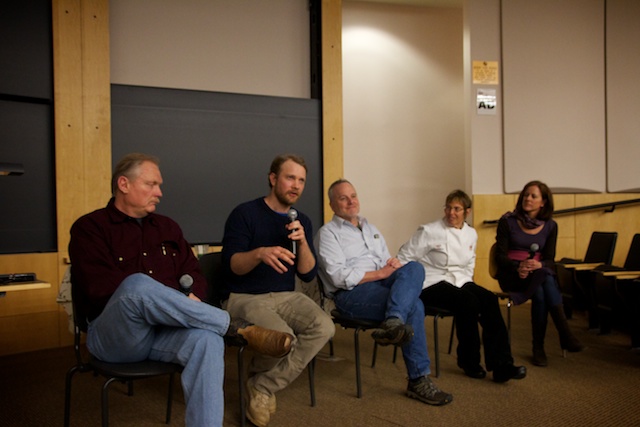
Eaton to CSU
We landed in DIA and promptly got stuck in an hour long line for the car rental, which made us late for our first screening in Colorado, at Eaton High School FFA.
